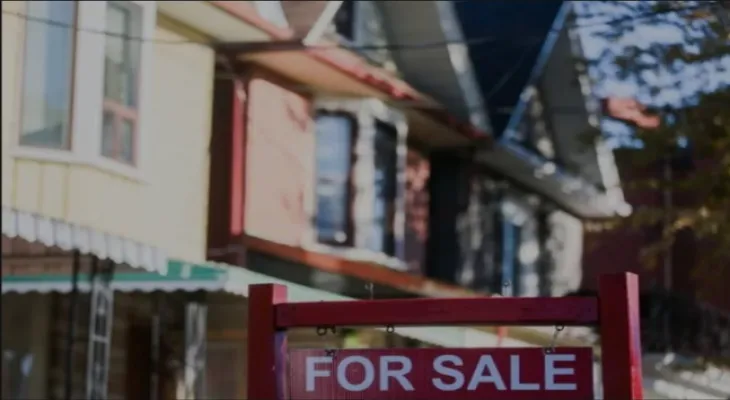Search here
Newspaper
Search here

Arab Canada News
News

Published: April 12, 2023
Private mortgage lenders have refused to renew loans for their current borrowers, leaving heavily indebted homeowners without a source of financing.
Canadian Mortgages Inc, CMLS Financial, New Haven Mortgage Corp, and some private lenders are among those who refused renewal requests of some borrowers' loans after home prices fell over the past year.
This happens in areas where home prices have dropped significantly. This includes Owen Sound, Bowmanville, Orillia, Timmins, Hamilton, and Brampton in Ontario, and Prince Rupert in British Columbia.
Private lenders are concerned that they will not be able to recover their capital if borrowers are unable to make their monthly payments. Private lending is usually determined using a measure called the loan-to-value ratio (LTV), which measures the amount owed by the homeowner relative to the appraised value of the property. The higher the debt owed by the homeowner, the higher the ratio and the greater the risk to the lender. This is because the lender has less chance of making a profit if the borrower stops making payments and the lender has to foreclose on the mortgage and sell the property.
Currently, many private lenders want to lend up to only 75 percent of the property value — also known as a 75 percent loan-to-value ratio, whereas when home prices rose in 2021, private lenders were willing to provide loans at 90 percent.
Now that home prices have fallen, this has increased the risk to the lender and they are no longer willing to renew loans. When borrowers try to renew their mortgage, the lender either refuses to renew the loan or tells borrowers that their properties need to be re-appraised. When a property is re-appraised, it has a much lower value.
Also, homeowners who borrow from private lenders usually cannot qualify for a loan from banks, which have cheaper mortgages but stricter requirements. This includes requiring borrowers to undergo a mortgage stress test and prove they have enough employment income to cover their monthly payments at an interest rate at least two percentage points higher than the actual mortgage contract.
Banks currently offer fixed-rate mortgages for five years at an interest rate of about 5 percent. In comparison, some private lenders charge interest rates as high as 12.99 percent on a one-year mortgage loan.
The federal mortgage stress test has driven a group of borrowers to private lenders, including mortgage investment companies like Canadian Mortgages Inc. (CMI), which rely on funds from investors as well as funds repaid by borrowers to provide new mortgage loans. Private lenders can also be individuals who use their own money, including financing from a Registered Retirement Savings Plan, to provide the mortgage.
Canadian Mortgages Inc, which refused some renewals, did not respond directly to questions about why it stopped renewing loans for some of its clients, with Elizabeth Wood, Vice President, saying underwriting decisions taken by the lender are a case-by-case matter to protect the interests of all parties involved. She added that when a mortgage renewal is due, CMI analyzes the file “to determine ongoing suitability,” and the analysis may include “updated appraisals, as well as relevant market information.”
Because private lenders will not offer a mortgage with an LTV ratio higher than 75 percent, some heavily indebted homeowners will find it harder to get a mortgage. This is because their property values have fallen and pushed their LTV ratios above 75 percent.
For example: A borrower made a down payment of $125,000 on a property worth $500,000 at the beginning of last year. Then the homeowner had to borrow $375,000. This means the loan was 75 percent of the property value, and the property was at 75 percent LTV. If property value drops by 20 percent — as it has in many places in Canada — the property is now worth $400,000. This means the loan now represents 94 percent of the property value.
Comments